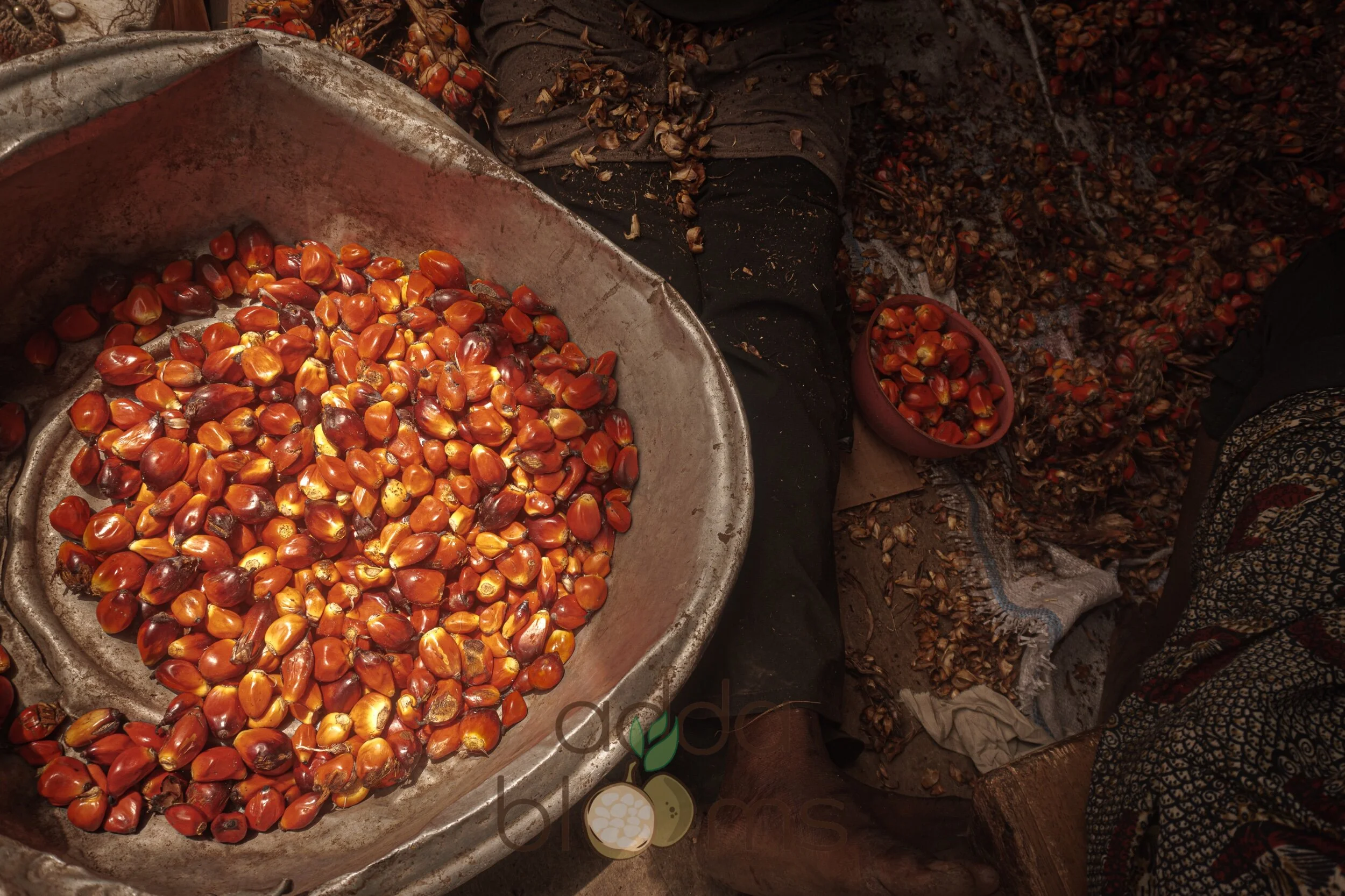The Story of Oil Palm
I define deforestation as an act of violence against the land. It is a process of intentionally stripping away the earth’s natural resources that sustains its ecosystems. Deforestation has led to the loss of rainforests, indigenous food systems, native communities, rivers, streams, lakes, and many unimaginable consequences.
Most recently, the oil palm business has become a major cause of deforestation, globally.
Photography: Ekow.Dawson
The palm nut is the reddish fruit from the palm nut tree. The palm nut kernel is the edible seed that is inside of the fruit. The palm nut fruit yields two distinct oils: palm oil derived from the outer red parts of the fruit, and palm kernel oil derived from the seed inside. Oil is extracted from both the pulp of the fruit, the reddish mini fruit, as well as from the kernel, the seed inside the fruit.
Oil palm is native to West, and South Western Africa, it goes as far back as 5,000 years. History traces this food to Northern Nigeria and Northern Cameroon, as well as Angola and Gambia.
In the late 1800’s, archaeologists discovered palm oil in a tomb that dates back to 3,000 BCE. It was concluded that the fruit must have been brought to Egypt by travellers and traders.
Photography: Ekow.Dawson
Around the 1960’s, oil palm was taken from Eastern Nigeria to Malaysia, Cambodia, and to Indonesia. Since then, these countries have become the biggest monoculture producers of oil palm.
Monoculture is the act of growing a single crop in a particular area. Palm nut oil is planted as a monoculture. Ancestral and native trees are cut down, sustainable food systems are destroyed, local communities are moved are displaced just to put up plantations of oil palm.
Oil palm companies in Indonesia, Malaysia, and Brazil are contaminating rivers, poisoning the soil, and harming the environment through oil palm processing.
For instance, in the state of Pará in Brazil, which was once home to bountiful rainforests is now invaded with uniform rows of oil palm. Oil palm exporting companies have been seen throwing palm oil residue in rivers and lakes, and have contributed to prolonged water contamination that have impacted the health of local communities.
Where oil palm is grown is extensively, there is mounting evidence of harm to both the human and the environment.
Oil palm is integral to West African food systems, diet and culture. It is used to make soups called “Abenkwan”, a stew called “Palava”, and used in many nutritious sauces. We continue to abuse and over extend the use of many foods meant for human nutrition and environmental sustainability. What happens when we abuse the use of foods?


